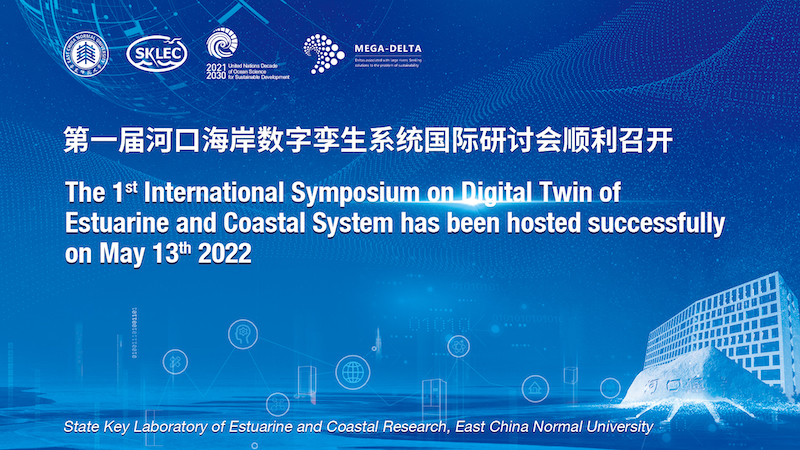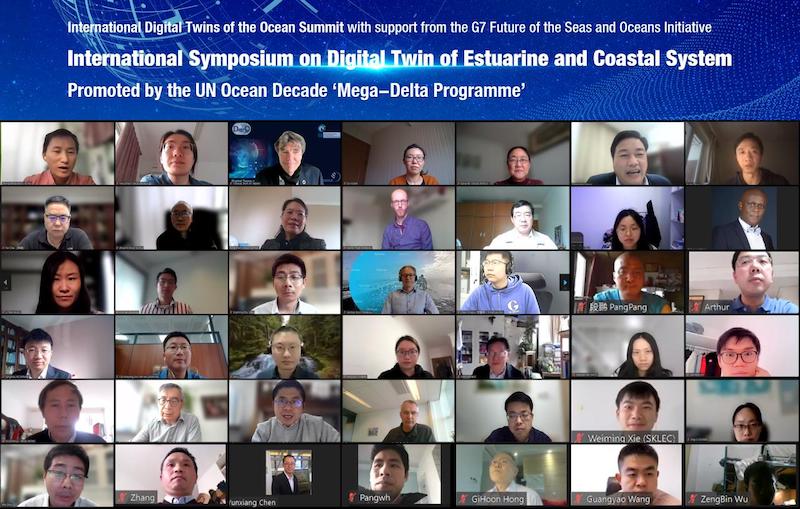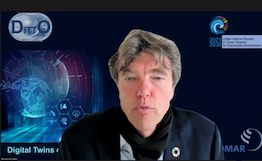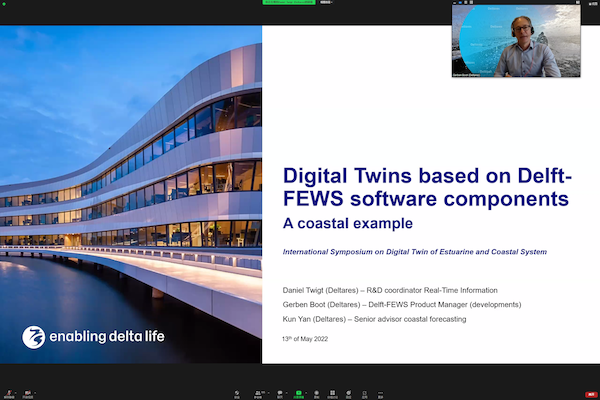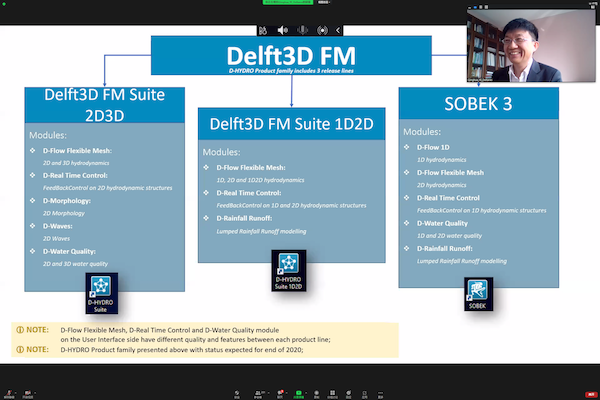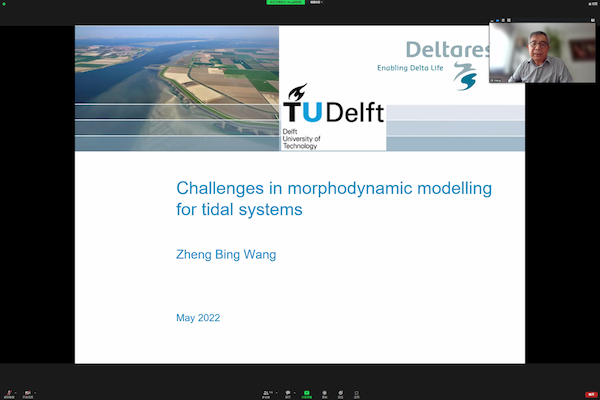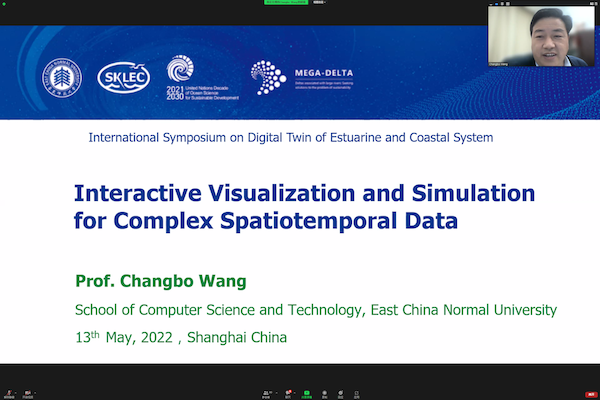The 1st International Symposium on Digital Twin of Estuarine and Coastal System, hosted by the State Key Laboratory of Estuarine and Coastal Research (SKLEC),was held online on May 13, 2022. More than 200 scientists attended this meeting. Prof. Qing He, the director of the State Key Laboratory of Estuarine and Coastal Research, delivered a warmly welcome speech. Prof. Zhong Peng chaired this symposium.
Group photo
Prof. Qing He congratulated for the opening of the 1st International Symposium on Digital Twin of Estuarine and Coastal System, and emphasized that Mega-Delta Program of UN Ocean has the overall objective to support sustainable development in delta regions. Integrated framework of observations and numerical modelling system, with the newest technology of big data management and artificial intelligence for data analysis, is becoming the right way to guarantee the success of the Mega-Delta Program. Therefore, as the leading institute of Mega-Delta Program, the State Key Laboratory of Estuarine and Coastal Research in East China Normal University decided to hold the International Symposium on Digital Twin of Estuarine and Coastal system, in order to better serve the scientific research, engineering applications and emergency management on the mega deltas over the whole world. This event is the first symposium on digital twin of estuarine and coastal system, and it aims to enhance the understanding and exchange ideas of the digital twin of estuarine and coastal system.
This symposium has received the invitation from the Digital Twin of the Ocean Program which is endorsed as part of the UN Ocean Decade. Currently it is published as one of virtual satellite events in the International Digital Twin of the Ocean Summit (https://www.g7fsoi.org/digital-twin-ocean-summit/). Dr. Martin Visbeck is a professor of University Kiel and the head of research unit Physical Oceanography at GEOMAR – Helmholtz Centre for Ocean Research Kiel. Prof. Visbeck is also the ordinary member of the governing board of International Science Council, and member of the European Academy of Sciences. Prof. Visbeck introduced the UN Ocean Decade ‘Digital Twin of the Ocean Program’, and emphasized that the digital twin is not only the way to understand the ocean, but also the way to plan and intervene the ocean. Prof. Visbeck praised the symposium program and the fantastic presentations, and looked forward to the long-term collaboration with East China Normal University on the digital twin of estuarine and coastal system.
Greetings from Prof. Martin Visbeck
In the session of observations and modelling system, six scientists from the world leading universities/research institutions introduced the latest research on the digital twin of estuarine and coastal system. Followed by the session of core technologies, experts from Deltares/Delft University of Technology, Tsinghua University and East China Normal University discussed the technologies related to data assimilation, model coupler, data system and visualization. Later, four more talks were presented focusing on the application of the digital twin system. Those talks attract great interests from audiences, and many questions and comments were raised from all over the world. Prof. Fang Shen, Prof. Leicheng Guo and Prof. Zhixuan Feng chaired those three sessions respectively.
At the last session, Prof. Zhong Peng hosted the discussion on challenges of the digital twin of estuarine and coastal system. Dr. Qinghua Ye from Deltares and Prof. Fei Chai from Second Institute of Oceanography, MNR, shared their perspectives and proposed possible solutions. In the end Prof. Zhong Peng closed the symposium after a brief summary.

